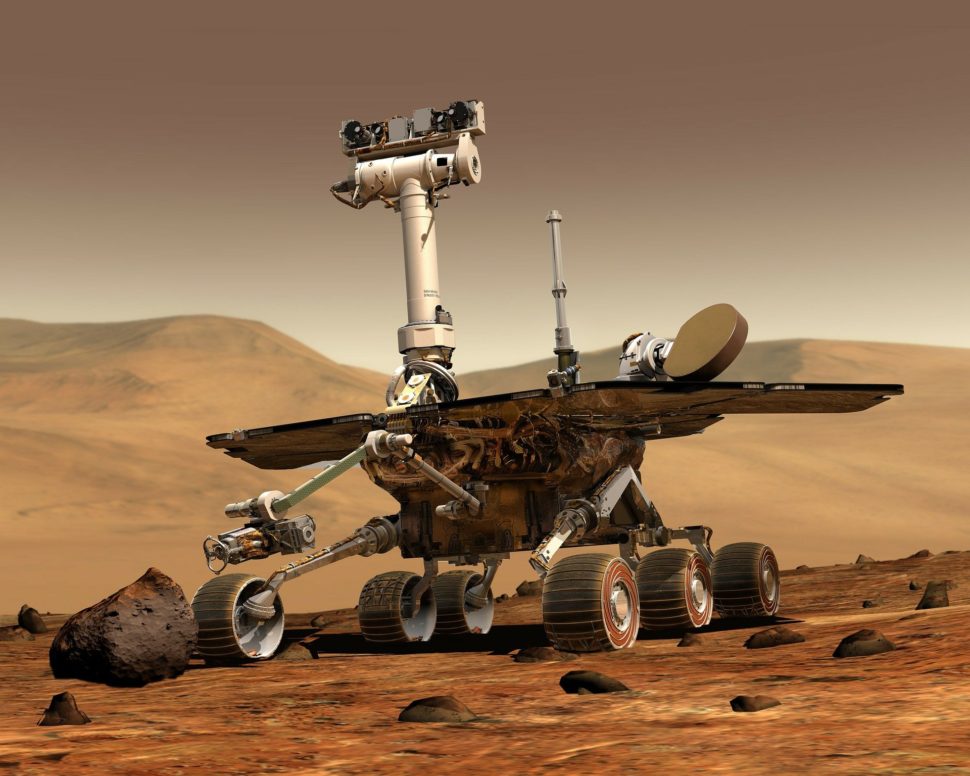Edgy Labs reviews Elon Musk’s International Astronautical Congress presentation and discusses the possibility of interplanetary travel.
Elon Musk started SpaceX in 2002 with the ultimate goal of facilitating Mars colonization. More than a decade later, SpaceX has made significant progress, but Elon Musk’s Mars plan is still work in progress.
Founded in 2002, the ultimate goal of SpaceX was facilitating Mars colonization.
Last week at the International Astronautical Congress, Musk took us through his latest plan for colonizing the Red Planet.
Lingering Questions on Elon Musk’s Mars Plan and Transport Systems
Last year, Edgy Labs covered the proposed engine, rocket booster, ship and cargo carrying technologies presented by Musk.
Now, we have a slightly better idea of how these tech breakthroughs will be deployed – But only slightly.
Will these trips be one-way? By the very nature of such an expensive production, Musk reaffirms that the ships will be fully reusable and most certainly round-trip focused.
How will we refuel on Mars? Musk (again citing cost) proposes using a resourced propellant (Methane) that can be found on Earth as well as Mars.
Who will go? As a commercial enterprise, ITS would be open to the public for a price – much like airplane trips.
Who will foot the bill? Despite Musk’s wealth, he can’t afford to do this alone. His speech on Saturday was intended to reassure NASA (who already has plans for exploration on Mars) and to pique the interest of other monied space fanatics.
Is Elon Musk’s Mars Plan Realistic?
It sounds like science fiction, but journalist Stephen Petranek considers it fact: within 20 years, humans will live on Mars.
Petranek supported Elon Musk’s Mars plan saying, “Humans will survive no matter what happens on Earth,” Petranek says. “We will never be the last of our kind.”
If you watched Elon Musk’s Mars Plan presentation at the International Astronautical Congress or read his commentary, “Making Humanity a Multi-Planetary Species,” you might agree with that sentiment.
In fact, Edgy Labs has speculated that collaboration and pooling resources might be what helps humanity finally colonize Mars.
But despite the enthusiasm behind Elon Musk’s Mars plan, astrophysicist Neil Degrasse Tyson doesn’t buy it.
Degrasse instead insists that there must be both corporate and country-specific incentives.
What’s Really at Stake in the SpaceX Sprint to Mars?
Competition and mutually assured destruction got humanity first into space (via Russia) and then to the moon (via the U.S.).
Scott Hubbard, a professor at Stanford University, and Francois Chopard, founder of Starburst Accelerator, discusses Elon Musk’s Mars plan, why we would need to go to the red planet, and how the idea will be funded.
Setting aside the question of feasibility, the U.S. needs to play the game.
While NASA is on the slow and steady but working on it, China and Russia have state-sponsored programs that are making serious moves and have pretty concrete timelines.
How much would you pay to go to Mars? What would you want to do on an 8-month space flight?



















Comments (0)
Most Recent